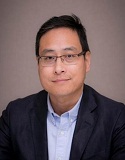| Biography | |
|---|---|
 Prof. Zhaoyang Liu Hamad Bin Khalifa University (HBKU), Qatar |
|
| Title: Oil contaminate removal from wastewater with novel anti-fouling membranes | |
| Abstract: Oil contamination is typically caused by oil and gas-related activities such as vessel accidents, which can pollute waterways as well as the environment and endanger the ecosystem. Tanker ship cleaning contributes to oil spills, which have a negative impact on coastal countries due to prolonged service disruption. It is critical for coastal countries to develop efficient oil contaminate removal technology. There are various oil/water separation technologies, such as gravity separation, hydrocyclones, air flotation, and membrane filtration, among others. Among these, membrane filtration has been shown to produce high-quality effluent. Commercial membranes, on the other hand, still face some practical issues, such as a high propensity for membrane fouling when dealing with oily wastewater. We developed a novel anti-fouling filtration membrane for oil/water separation in this study. The membrane was made of inorganic nanofibers, which have low membrane fouling, high permeation flux, and long-term durability. This study's findings could pave the way for new membrane filtration applications in the oil and gas industry. | |
| Biography: Dr. Zhaoyang Liu is a Senior Scientist at Water Center at Qatar Environment and Energy Research Institute (QEERI). His expertise involves the development and optimization of advanced processes and materials for water treatment. His research work is frequently cited internationally (h-index 41, as of July 2022). To align with the nation and institute's vision for water security, Dr. Liu is currently leading the development of oil/water separation technology research project. The developed oil/water separation technology has multiple applications, including offshore oil spill cleanup, produced water treatment, and onshore seawater intake purification (in the event of oil spill) for desalination plants. He served as an Editorial Board Member for Scientific Reports – a Nature journal, as a result of his research standing within the global water treatment community. | |
